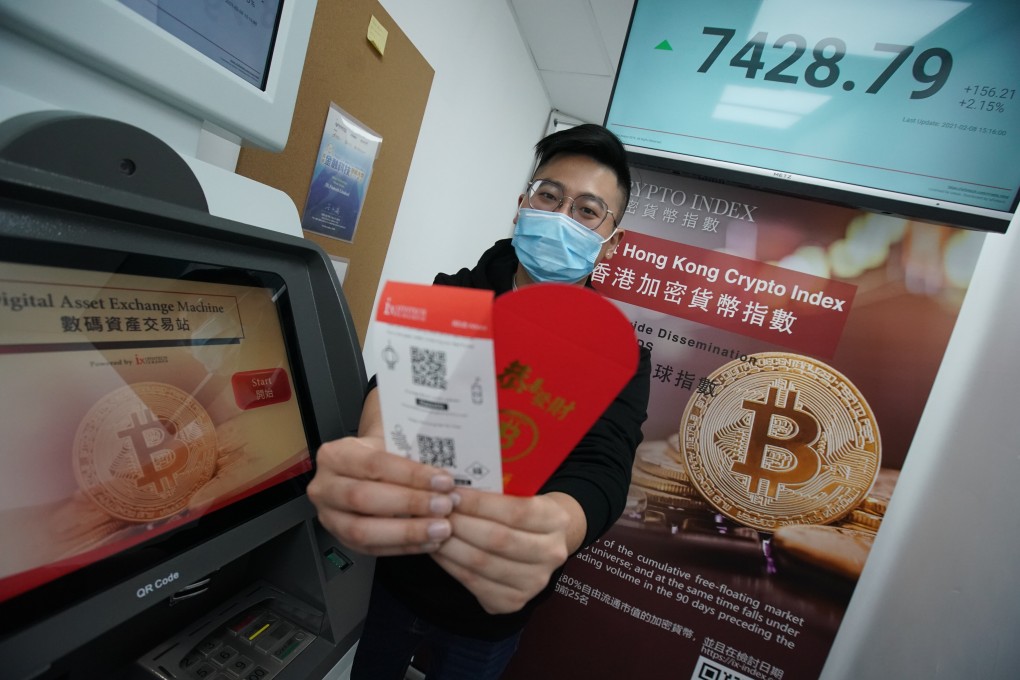Hong Kong fintech start-up hopes bitcoin in a paper envelope will broaden cryptocurrency ownership beyond the tech-savvy
- ixFintech has launched a digital asset exchange machine that dispenses bitcoin carried in user-friendly paper envelopes
- The move comes as many Hongkongers celebrate Lunar New Year by handing out ‘lai see’ – red packets containing ‘lucky money’

While banks and regulators in Hong Kong have been encouraging givers of lai see to distribute the lucky money through electronic wallets to promote mobile payments, a Hong Kong cryptocurrency start-up has given the famous “red packets” a digital twist – offering bitcoin in a paper envelope.
Now six-year-old ixFintech has launched an ATM which dispenses a paper envelope containing a QR code that the user can then scan to download a crypto-wallet on their mobile phone. The launch coincides with Lunar New Year, and the codes will initially come in a traditional red envelope that can be given as lai see.
Given its surge in value, the idea of sending bitcoin in a paper envelope goes far beyond simply mimicking the Hong Kong tradition of handing out lucky money at Lunar New Year, according to Irene Wong, founder and chief executive of ixFintech,which won funding from the Cyberport’s incubation programme.

“More importantly, through using a paper envelope, we want to promote wider bitcoin ownership by making it easier to start using a crypto-wallet,” said Wong. “Over time, we expect that digital assets will increasingly cross over to transactions that people make in their daily lives.”